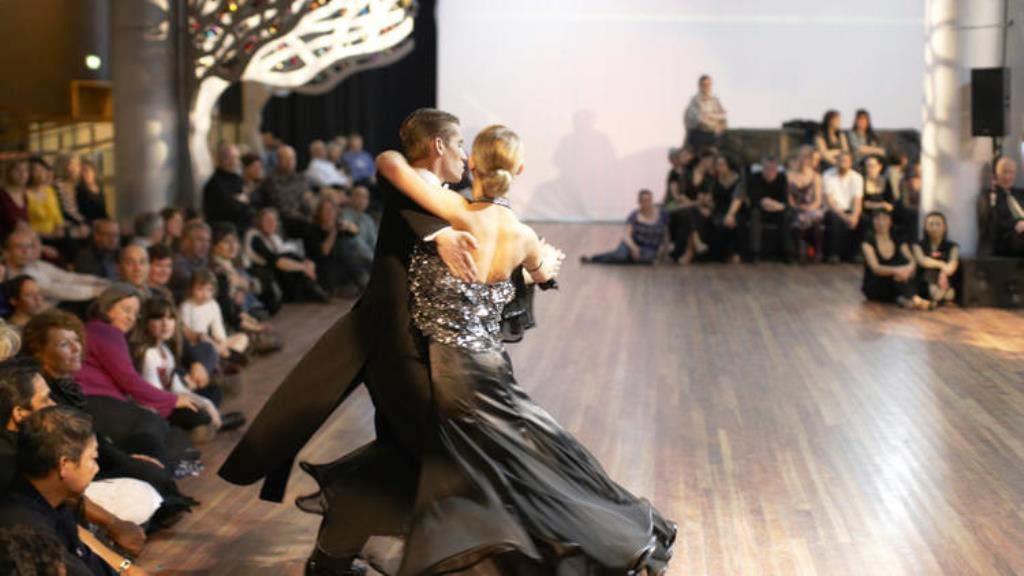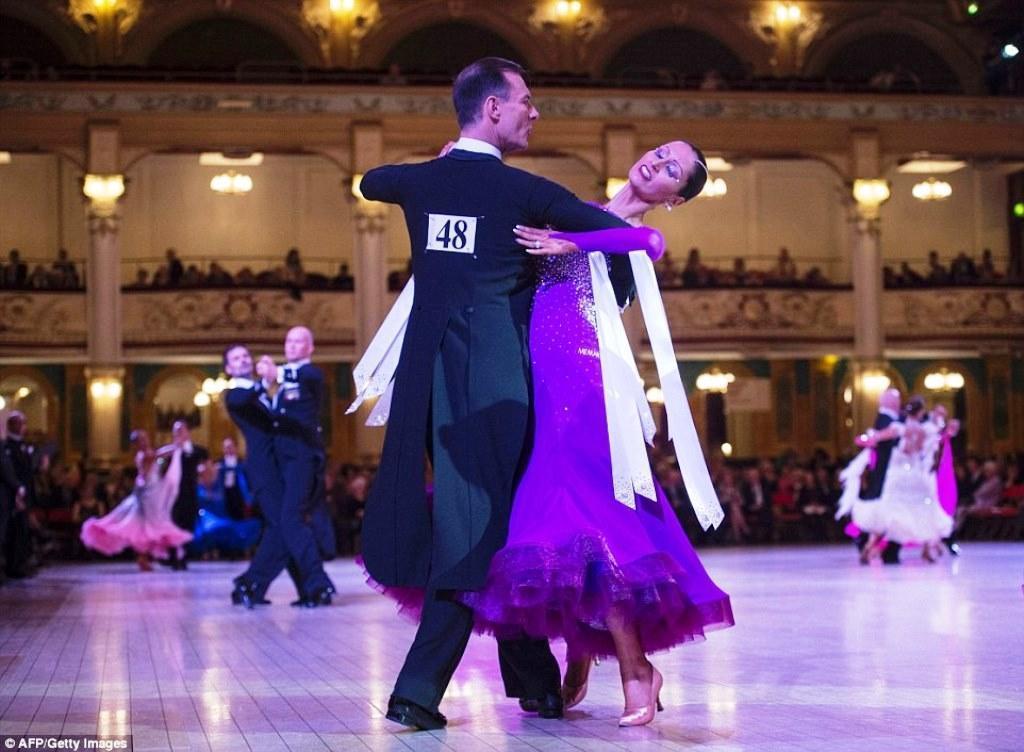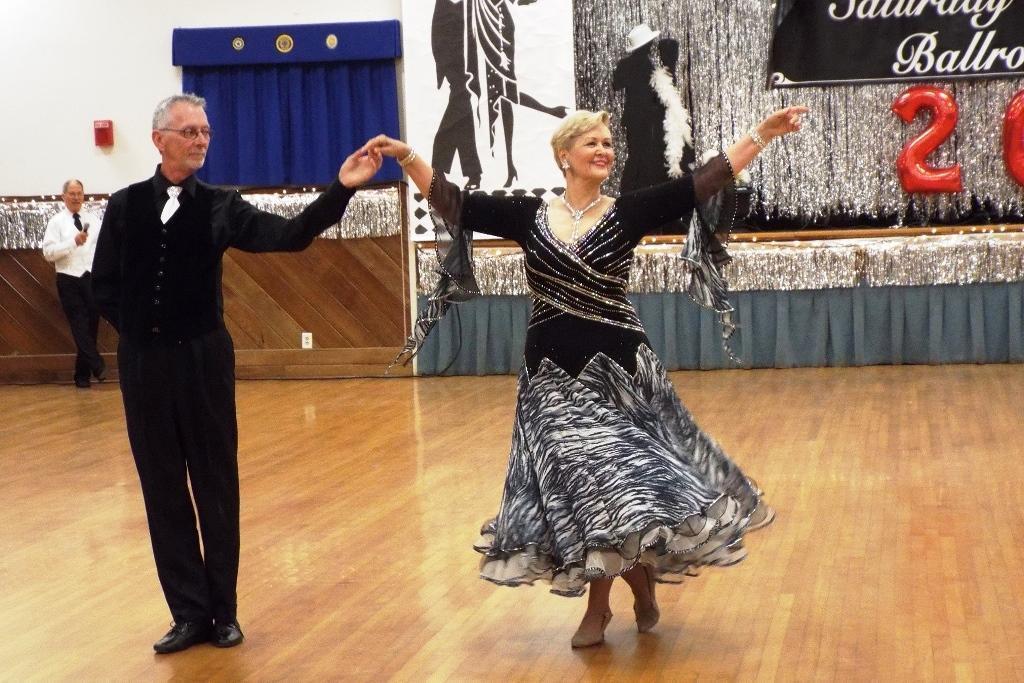
1. Introduction to the Popularity of Ballroom Dance in the UK
Introduction to the Popularity of Ballroom Dance in the UK
The UK has long been a hub of ballroom dance culture, with a proud history of its own unique style and traditions. From the grandeur of the Blackpool Tower Ballroom to the elegance of the Royal Albert Hall, ballroom dancing has been a part of British culture for centuries.
In recent years, the popularity of ballroom dancing in the UK has seen a resurgence, with a new generation of dancers taking up the art form and taking it in exciting new directions. From the competitive world of competitive ballroom dancing to the vibrant social scene of the dance floor, ballroom dancing has something to offer for everyone.
Competitive Ballroom Dancing
Competitive ballroom dancing has become increasingly popular in the UK, with competitions taking place all over the country. These competitions range from local and regional events to the prestigious Blackpool Dance Festival, which attracts the world’s best ballroom dancers.
Competitive ballroom dancing is a highly technical and challenging art form, requiring dedication and skill. Dancers must learn a variety of steps and techniques, as well as the etiquette of the dance floor.
Social Ballroom Dancing
Social ballroom dancing is a great way to make new friends and have fun. There are a variety of social dance events taking place all over the country, from weekly dance classes to one-off dance nights.
Social ballroom dancing is a great way to get fit, learn a new skill and meet new people. It’s a great way to let loose and have fun, and it’s a great way to get out of the house and enjoy the nightlife.
2. History of Ballroom Dance in the UK
History of Ballroom Dance in the UK
The history of ballroom dancing in the UK dates back to the 16th century, when the court of King Henry VIII was known to enjoy the pastime. By the 17th century, ballroom dancing had become a popular activity among the British aristocracy.
The Victorian Era
During the Victorian era, ballroom dancing was seen as an important part of society and was a popular pastime among the upper classes. The popular dances of the time included the waltz, polka and quadrille.
The 20th Century
In the early 20th century, ballroom dancing was still popular among the upper classes, but it was also becoming more accessible to the general public. Many dance schools opened up across the country, offering lessons in the popular dances of the time.
By the mid-20th century, ballroom dancing had become a popular pastime for people of all classes and backgrounds. It was also becoming a popular form of entertainment at weddings and other social events.
Today, ballroom dancing is still popular in the UK and is enjoyed by people of all ages. It is a great way to stay active and socialise, and it is even a popular competitive sport.
3. Exploring Different Types of Ballroom Dance in the UK
Exploring Different Types of Ballroom Dance in the UK
The UK is home to a variety of ballroom dance styles, from traditional forms to modern interpretations. Here we take a closer look at some of the most popular styles of ballroom dance in the UK.
Waltz
The Waltz is a traditional ballroom dance that dates back to the 18th century. It’s a smooth dance that’s characterized by its graceful, flowing movements. The Waltz is a popular choice for couples who want to take part in a romantic dance.
Foxtrot
The Foxtrot is a lively dance that originated in the early 20th century. It’s a fast-paced dance that features sharp turns and quick footwork. The Foxtrot is a great choice for those who want to show off their fancy footwork and impress their partners.
Tango
The Tango is a passionate and dramatic dance that originated in Argentina. It’s a sensual dance that features intricate footwork and passionate body movements. The Tango is a great choice for those who want to show off their skill and grace.
Quickstep
The Quickstep is a fast-paced dance that originated in the 1920s. It’s characterized by its quick, energetic movements and intricate footwork. The Quickstep is a great choice for those who want to show off their agility and speed.
Viennese Waltz
The Viennese Waltz is a traditional ballroom dance that dates back to the 19th century. It’s a fast-paced dance that features quick, sweeping movements. The Viennese Waltz is a great choice for those who want to show off their skill and grace.
4. The Benefits of Ballroom Dance in the UK
The Benefits of Ballroom Dance in the UK
Ballroom dancing is a popular pastime in the UK, and it offers many physical and mental benefits. Here are just a few of the advantages of taking up ballroom dancing in the UK:
Improved Physical Health
Ballroom dancing is a great form of exercise, as it can help to improve strength, flexibility, coordination, and balance. It can also help to reduce stress and improve cardiovascular health.
Social Benefits
Ballroom dancing is a great way to meet new people and make new friends. It is a great way to socialise and make connections with people who share a common interest.
Cultural Benefits
Ballroom dancing has a long history in the UK, and it is an important part of British culture. Learning about the history and traditions associated with ballroom dancing can be a great way to learn about and appreciate British culture.
Fun and Enjoyment
Above all, ballroom dancing is a fun and enjoyable activity. It is a great way to have fun and get some exercise at the same time.
5. Popular Locations for Ballroom Dance in the UK
Popular Locations for Ballroom Dance in the UK
London
London is home to some of the best ballroom dance schools in the UK, with a range of classes and events to suit all levels of skill and experience. Popular venues include the Royal Albert Hall, the Barbican Centre, and Sadler’s Wells.
Manchester
Manchester is a great place to discover ballroom dance, with some of the country’s most renowned dance schools located here. From beginner classes to advanced workshops, there’s something for everyone. Popular venues in Manchester include the Lowry Theatre, the Manchester Academy, and the Palace Theatre.
Birmingham
Birmingham is a vibrant city with a thriving ballroom dance scene. From the Birmingham Royal Ballet to the Birmingham Dance Festival, there are plenty of events and classes to explore. Popular venues include the Birmingham Hippodrome, the Alexandra Theatre, and the Birmingham Repertory Theatre.
Leeds
Leeds is home to some of the best ballroom dance schools in the country, with classes for all levels of skill and experience. Popular venues include the Leeds Grand Theatre, the West Yorkshire Playhouse, and the Carriageworks Theatre.
Edinburgh
Edinburgh is a great place to explore the world of ballroom dance, with a range of classes and events to suit all levels of skill and experience. Popular venues include the Edinburgh Playhouse, the Festival Theatre, and the King’s Theatre.
6. Famous Ballroom Dancers in the UK
Famous Ballroom Dancers in the UK
Anton du Beke
Anton du Beke is a British ballroom dancer, singer, television presenter, and author. He is best known for being one of the professional dancers on the BBC One celebrity dancing show, Strictly Come Dancing. He has also appeared on other television shows such as The One Show, Pointless Celebrities, and The Great British Bake Off.
Brian Fortuna
Brian Fortuna is an American-born, British-based professional dancer and choreographer. He is best known for his appearances on the BBC One celebrity dancing show, Strictly Come Dancing. He has also appeared as a judge on the series So You Think You Can Dance? and as a choreographer on the show Dancing with the Stars.
Karen Hardy
Karen Hardy is a British ballroom dancer and choreographer. She is best known for being a professional dancer on the BBC One celebrity dancing show, Strictly Come Dancing. She has also appeared on other television shows such as Come Dancing, DanceX, and The One Show.
Ian Waite
Ian Waite is a British ballroom dancer and choreographer. He is best known for being one of the professional dancers on the BBC One celebrity dancing show, Strictly Come Dancing. He has also appeared on other television shows such as Come Dancing, DanceX, and The One Show.
Natalie Lowe
Natalie Lowe is an Australian-born, British-based professional dancer and choreographer. She is best known for being one of the professional dancers on the BBC One celebrity dancing show, Strictly Come Dancing. She has also appeared on other television shows such as Come Dancing, DanceX, and The One Show.
Pasha Kovalev
Pasha Kovalev is a Russian-born, British-based professional dancer and choreographer. He is best known for being one of the professional dancers on the BBC One celebrity dancing show, Strictly Come Dancing. He has also appeared on other television shows such as Come Dancing, DanceX, and The One Show.
7. How to Get Started with Ballroom Dance in the UK
How to Get Started with Ballroom Dance in the UK
Find a Dance Class
The best way to get started with ballroom dance in the UK is to find a dance class. There are a variety of classes available, from beginner classes to more advanced classes. You can find classes at local dance schools, community centres, and other venues. You can also look online for classes in your area.
Choose a Style of Dance
Once you have found a class, you will need to decide which style of dance you want to learn. There are many different types of ballroom dance, including Waltz, Tango, Foxtrot, and Cha-Cha. You can also choose to learn a more modern style of dance, such as Salsa or Swing.
Attend a Class
Once you have chosen a style of dance, it is time to attend a class. You will need to wear comfortable clothes and shoes that are suitable for the type of dance you are learning. You may also need to bring a partner with you, depending on the class.
Practice
After attending a class, it is important to practice. You can practice with your partner or on your own. Practicing with a partner is beneficial, as it will help you to become more familiar with the steps and techniques.
Join a Group
Once you have become comfortable with the basics of ballroom dance, you may want to join a group. Groups can provide a great way to meet other dancers and to learn more about the different styles of dance.
Compete
If you have become proficient in ballroom dancing, you may want to compete. There are many competitions held throughout the UK, and you can find out more information about them online.
Have Fun!
Above all, remember to have fun with ballroom dance. It is a great way to meet new people and to experience something new.
8. Conclusion: Exploring the Popularity of Ballroom Dance in the UK
Conclusion: Exploring the Popularity of Ballroom Dance in the UK
Ballroom dancing in the UK has experienced a resurgence in popularity in recent years, with a number of factors contributing to this trend. The increasing availability of classes, the growing popularity of competitive dancing, and the rise of social media have all helped to make ballroom dancing more accessible and appealing to the public.
At the same time, the UK has seen a rise in the number of professional ballroom dancers, with more and more people choosing to pursue a career in this field. This has helped to further promote the art form and has also made it more accessible to those who are interested in learning the basics.
Overall, ballroom dancing in the UK is becoming increasingly popular, with more people taking up the activity and more professionals entering the field. With the right resources and support, this trend is likely to continue, and the UK could soon become a major centre for ballroom dancing.
The Benefits of Ballroom Dancing
Ballroom dancing is an enjoyable and rewarding activity that can be enjoyed by people of all ages and abilities. It is a great way to stay active and to meet new people, and it can also help to improve coordination and confidence.
The UK has a thriving ballroom dancing scene, and there are plenty of opportunities to get involved. Whether you are a beginner or an experienced dancer, there is something for everyone to enjoy.
So, if you are looking for a fun and exciting way to stay active, then why not give ballroom dancing a try? The UK has a vibrant and diverse scene, and you are sure to find something to suit your needs.




